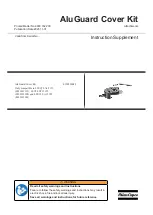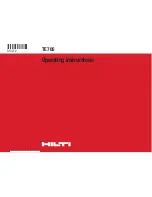
English |
23
Bosch Power Tools
1 609 929 W88 | (1.6.10)
Ejecting the Saw Blade (see figure B)
f
When ejecting the saw blade, hold the ma-
chine in such a manner that no persons or
animals can be injured by the ejected saw
blade.
Press the SDS clamping lever
17
sideward to
the stop. The Precision-Control guide cheeks
11
are released and the saw blade
13
is ejected.
Dust/Chip Extraction
f
Dusts from materials such as lead-containing
coatings, some wood types, minerals and
metal can be harmful to one’s health. Touch-
ing or breathing-in the dusts can cause aller-
gic reactions and/or lead to respiratory infec-
tions of the user or bystanders.
Certain dusts, such as oak or beech dust, are
considered as carcinogenic, especially in
connection with wood-treatment additives
(chromate, wood preservative). Materials
containing asbestos may only be worked by
specialists.
– As far as possible, use a dust extraction
system suitable for the material.
– Provide for good ventilation of the work-
ing place.
– It is recommended to wear a P2 filter-
class respirator.
Observe the relevant regulations in your
country for the materials to be worked.
Dust Cover
Mount the dust cover
16
before connecting the
machine to the dust extraction.
Mount the dust cover
16
onto the machine in
such a manner that the holders in the centre of
the dust cover engage on the contact protector
14
.
For work without dust extraction, the dust cover
16
can be removed. To remove the dust cover
16
, grasp it by the side and pull it off toward the
front.
Connecting the Dust Extraction
(see figures C–E)
Mount the vacuum connection
5
into the open-
ing of the base plate
7
. Make sure that the plas-
tic tip of the vacuum connection engages into
the corresponding opening on the housing as
shown in the figure.
Depending on the machine model, place a vacu-
um hose
19
(accessory) either directly onto the
vacuum connection
5
or cut off the old hose
end, screw the extraction adapter
20
(accesso-
ry) onto the hose end and insert it directly into
the vacuum connection
5
. Connect the vacuum
hose
19
with a vacuum cleaner (accessory). An
overview for the connection of various vacuum
cleaners can be found at the end of these in-
structions.
Switch the saw dust blower off when a dust ex-
traction system is connected (see “Sawdust
Blower Device”).
To enable optimum dust extraction, use the
splinter guard
21
if possible.
The vacuum cleaner must be suitable for the ma-
terial being worked.
When vacuuming dry dust that is especially det-
rimental to health or carcinogenic, use a special
vacuum cleaner.
Splinter Guard (see figure F)
The splinter guard
21
(accessory) can prevent
fraying of the surface while sawing wood. The
splinter guard can only be used for certain saw
blade types and only for cutting angles of 0°.
When sawing with the splinter guard, the base
plate
7
must not be moved back for cuts that are
close to the edge.
Press the splinter guard
21
from below into the
base plate
7
(with the notch facing upward as
shown in the figure).
The splinter guard
21
can be inserted into the
base plate in 2 positions. For narrow saw
blades, insert the splinter guard fully to the
front; for wider saw blades, insert it further to
the rear in the base plate
7
.
When using the sliding shoe
6
, the splinter
guard
21
is not inserted into the base plate
7
,
but into the sliding shoe.
OBJ_BUCH-796-004.book Page 23 Tuesday, June 1, 2010 11:23 AM
















































